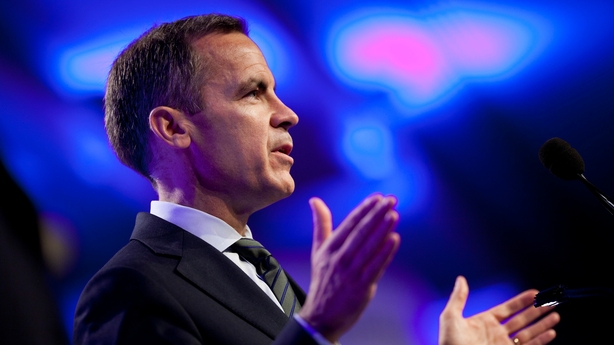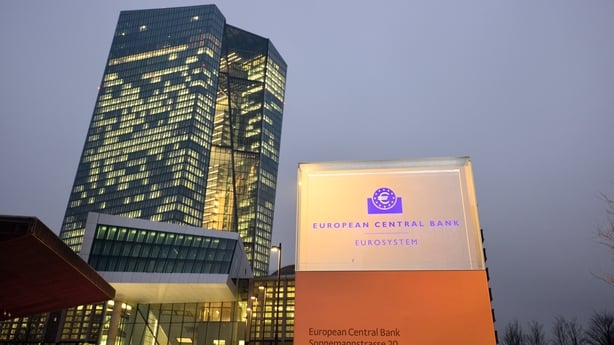The Bank of England said it would take all necessary steps to shield Britain's economy from the shock decision by voters to pull the country out of the European Union which caused immediate turmoil on financial markets.
"The Bank of England is monitoring developments closely," it said in a statement after the referendum victory of the "Leave" campaign.
The vote triggered a 10% fall in the value of sterling and a slump in government bond yields to a new record low.
"It has undertaken extensive contingency planning and is working closely with Her Majesty's Treasury, other domestic authorities and overseas central banks," the bank stated.
The Bank of England has previously said a decision to leave the EU - which buys nearly half Britain's exports - could deliver a material blow to the economy.
But it could also push up inflation because of the hit to sterling, complicating any decision to cut interest rates.
The UK economy was already slowing as the referendum approached and Bank of England Governor Mark Carney said in May that it could suffer a technical recession - a contraction in two consecutive quarters - in the event of a vote to leave the EU.
Carney said earlier this year that a Brexit vote would also test the "kindness of strangers" who fund the country's big current account deficit.
The Bank of England held two extra liquidity auctions ahead of the referendum and is due to hold another one on Tuesday in order to help banks avoid any problems around the time of the vote.
It also has the option of using previously agreed foreign currency swap lines with other leading central banks around the world as a way to prevent a seizing up of financial markets.
The bank has said it could cut interest rates in order to cushion Britain's economy from the shock of an "Out" decision but it might also come under pressure to raise them if sterling falls sharply, threatening to push up inflation.
Most economists polled by Reuters before the referendum had predicted a rate cut in the event of an "Out" vote.
The Bank of England is expected to wait and see where the value of the pound settles before taking any policy decisions. Its next scheduled monthly policy announcement is due on July 14.
In a televised statement, the Bank of England Governor Mark Carney has said that as a backstop and to support markets, the bank stands ready to provide £250 billion of additional funds.

Governor Carney said that in the coming weeks, the bank will consider any additional policy responses.
He also said that UK banks have the flexibility to lend to UK businesses and households.
Mr Carney said that the Bank of England has stress tested UK banks against scenarios more severe they those they currently face.
Separately, its banking supervision arm has been checking more intensively with banks that they have enough liquidity tosee them through any market turmoil.
It was in contact with banks ahead of the opening of financial markets this morning, a source familiar with the situation said.
Meanwhile, the European Central Bank is ready to provide euro and foreign currency liquidity if necessary, it said today, after the UK vote.

"Following the outcome of the UK referendum, the European Central Bank is closely monitoring financial markets and is in close contact with other central banks," it said in a statement.
"The ECB stands ready to provide additional liquidity, if needed, in euro and foreign currencies," it added.
It said it had prepared for the contingency in close contact with the banks that it supervises and considers that the euro area banking system is resilient in terms of capital and liquidity.
"The ECB will continue to fulfill its responsibilities to ensure price stability and financial stability in the euro area," the Frankfurt based ECB stated.
Separately, the ECB revealed that banks had taken out nearly €400 billion in ultra-cheap loans from the central bank as they steeled themselves for financial turbulence in wake of the referendum outcome.
The ECB said that 514 banks had borrowed €399.3 billion in four-year loans at a rate of 0% under its so-called targeted long-term refinancing operations or TLTRO scheme.
The banks are obliged to lend on the borrowed money to companies and businesses, as the continued weakness of credit activity is seen as one of the key factors in the still very tentative economic recovery in the 19 countries that share the euro.
A first version of the scheme was originally launched in September 2014.
But the ECB has decided to launch a second new round, comprising this time of four TLTROs in all, each with a maturity of four years, where banks can borrow at even more competitive rates.

